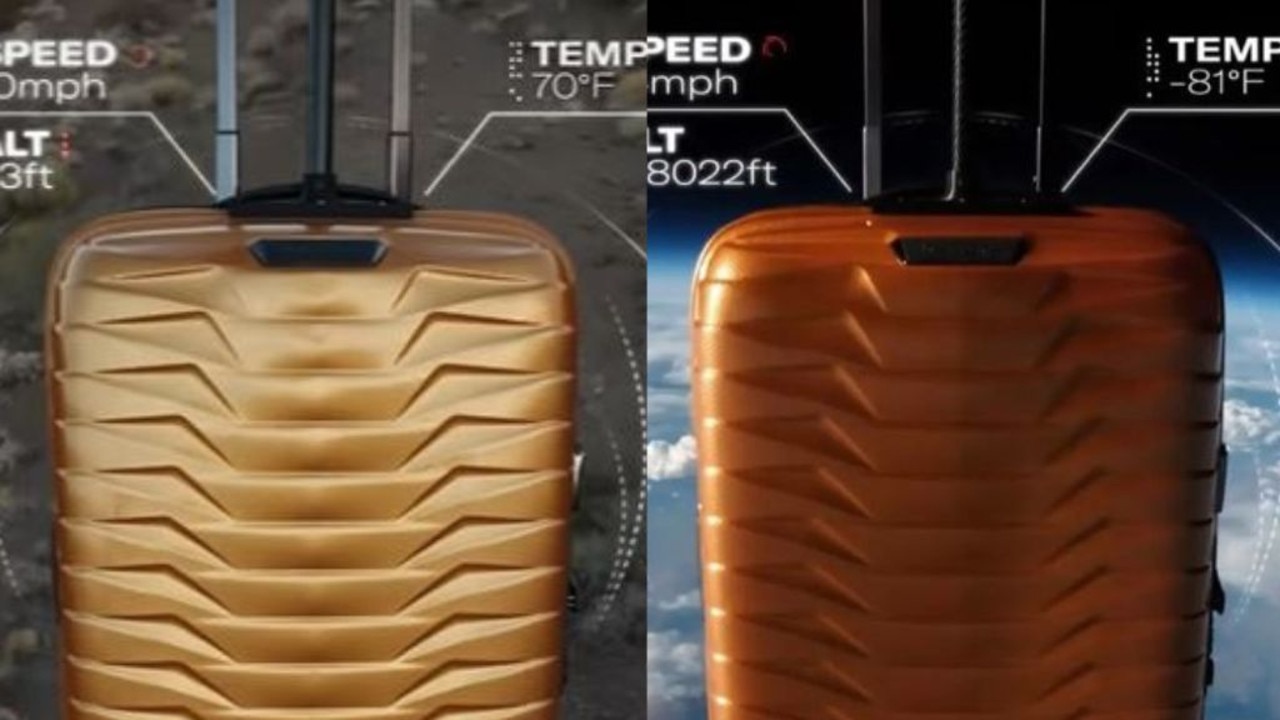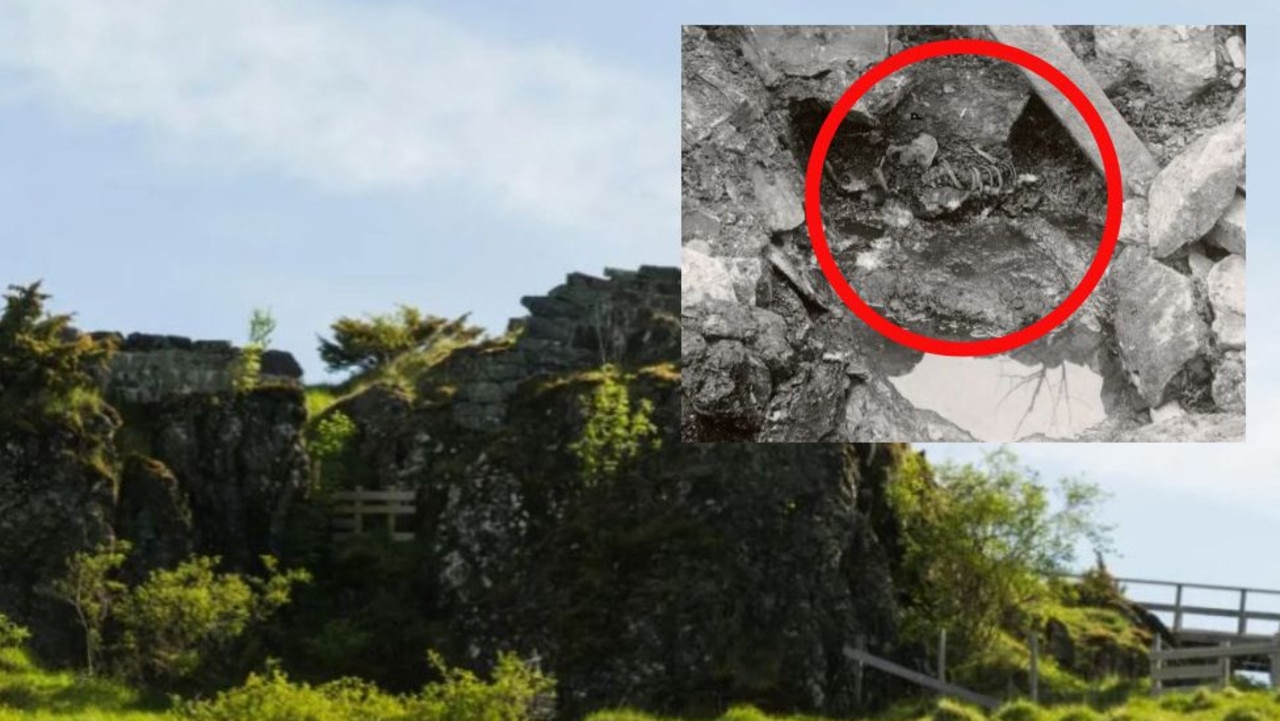Aussies are travelling to ‘dangerous’ destinations despite government warnings
Some of Lauren Bath’s favourite destinations are also ones the government warned her not to visit. This is why she went there anyway.
At only 38, Australian travel photographer Lauren Bath has already ticked off some of the world’s most iconic travel experiences.
She’s floated in the famous Dead Sea in Jordan, seen the world’s largest waterfall, watched elephants roam in the wild in Zimbabwe and danced the salsa with locals in Colombia.
The thing is, Ms Bath couldn’t have done any of those things had she not decided to venture into some of the world’s most “dangerous” countries.
The Gold Coast resident is among a growing number of Australians travelling to destinations deemed risky by the Department of Foreign Affairs and Trade.
According to a finder.com.au analysis of arrivals data, 16 per cent of holidays taken by Aussie residents last year — or about three million journeys — were to countries with government warnings.

More than 270,000 Australians travelled to the Middle East and North Africa between November 2017 and November 2018 despite 15 of the 18 countries in the region having Smartraveller warnings against them.
Smartraveller offers four levels of advice for travellers based on DFAT’s assessment of risk in more than 170 destinations. “Exercise normal precautions” is at the lowest end of the scale followed by “exercise a high degree of caution” then “reconsider your need to travel” and, finally, the big one: “do not travel”.
Three of Ms Bath’s favourite destinations are among those with warnings.
In Zimbabwe, DFAT urges travellers to exercise a high degree of caution due to risk of crime, civil unrest and political violence.


Jordan comes with a similar warning due to the risk of terror attack and other violence, while Australians are asked to reconsider travel to border areas near Syria and Iraq.
Advice for Colombia is mixed, with large swathes of the country under a level 3 warning and border areas near Venezuela and Ecuador on the “do not travel” blacklist.
Ms Bath told news.com.au she knew the about warnings as she was registered on the Smartraveller site but decided to travel anyway.
“To be honest, I want to visit every destination on earth. I am a massively intrepid traveller, and I’ve seen first-hand what a positive impact tourism can have on local cultures. Unless there is an active war going on, I don’t discount any destination,” she said.

“Of course, I always do my research first, but I have a wide network of professional
travellers to call on for this.”
Ms Bath said she understood the need for travel advice, and the Smartraveller website was a good resource — but felt experienced and confident travellers could make their own decisions.
“It’s always prudent when you are away from home to have good common sense, be very aware of your surroundings and personal belongings and have great contingency plans in case of any emergencies,” she said.
“All of these come with experience, which I have, and that’s why I’m confident with my travels.”
Ms Bath said if anything, the DFAT warnings took away some of the enjoyment of travelling as they made her “unnecessarily concerned”.

“In saying that, I’d rather be unnecessarily concerned and have a good experience than going in blind and unaware and having a bad experience,” she said.
DFAT recently updated its advice for Zimbabwe, where there were deadly clashes between police and protesters in the midst of presidential elections last year, and the recent Cyclone Idai left hundreds dead or missing.
Colombia — where Australian woman Cassie Sainsbury was arrested on drug charges in 2017 — has remained popular with daring travellers despite high levels of crime, including street robberies and kidnapping, and violent protests. In Jordan, home of the archaeological wonder of Petra, extremist groups have boasted of plans to target Western tourists, DFAT said.
Ms Bath said she had no negative experiences in any of those countries — but there were plenty of highlights.
“In Colombia, I climbed the rock of Guatapé, went to a salsa club and ate some of the best fruit of my life,” she said.

“In Jordan, I floated in the dead sea, waded through Wadi Mujib and visited Petra. And in Zimbabwe, I visited the world-famous Victoria Falls, saw the famous elephant families of Hwange National Park and cruised through the pristine waters of Bumi Hills. In fact, I could say that these are amongst my favourite countries that I’ve ever visited.
“I’m now running my own tours to Zimbabwe after having so many positive experiences travelling there. I want others to see the sights that I have seen.”
But the seasoned traveller had sage advice for other travellers.
“Do your research, don’t travel to anywhere overly challenging if you are not an experienced traveller and register with Smartraveller,” she said.
“Make sure someone at home has a full set of your travel documents, travel with cash and cards and keep them all separate, bring colour copies of your passport and store them separately to your actual passport.
“Use hotel room safes, watch your belongings when out and about, be more aware than
you would be at home.
“But, importantly, don’t let warnings detract you from getting to know the locals and having amazing experiences.”

According to finder.com.au, more Australians are travelling to “risky” countries.
Since 2012, there's been a 92 per cent increase in the number of Aussies travelling to Pakistan, which has a “reconsider your need to travel”, or level 3, warning.
Lebanon (level 2 warning) has experienced an 82 per cent increase, followed by Nepal (level 2) with 59 per cent, Mexico (level 2) with 54 per cent, Egypt (level 3) with 53 per cent and India (level 2) with a 51 per cent rise.
Travellers should be aware travel insurance might not always apply to countries with warnings, finder.com.au’s personal finance expert Kate Browne said.

“If you’re travelling to a country with an official warning you may still be able to take out insurance. But when it comes down to making a claim, your insurer could refuse reimbursement, which could leave you high and dry,” she said.
“Before you travel to one of these risky destinations make sure you compare policies and take out the one that will give you the most comprehensive cover. For instance, some policies will exclude countries labelled ‘reconsider your need to travel’ while others will only exclude ‘do not travel’.
“Aussie travellers need to be aware that some events will render their insurance ineligible. If there’s a strike, riot, terrorist attack, rebellion, war or even contagious disease epidemic you generally won’t be covered.
“Your insurer will be looking to see that you did everything possible to avoid these dangerous — and potentially deadly — situations.”




